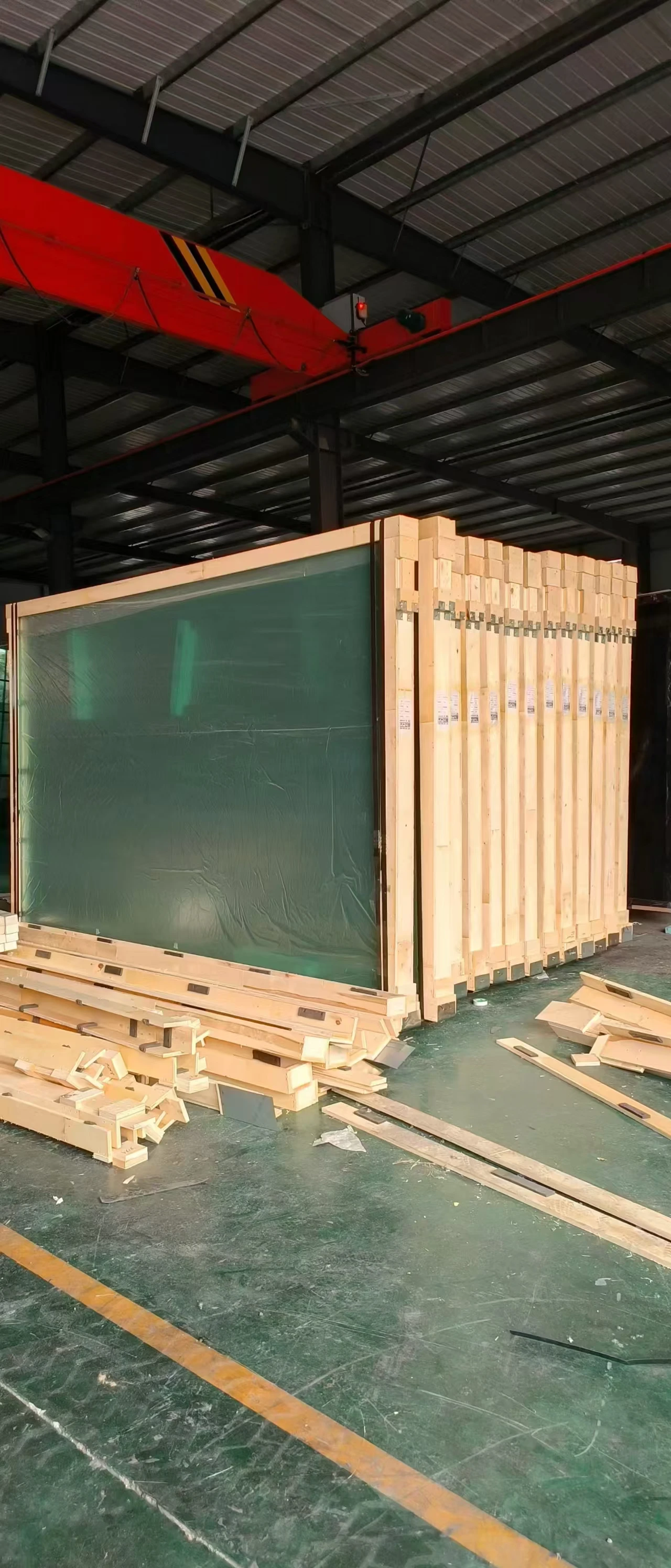Understanding 2mm Float Glass A Versatile Material for Various Applications
Float glass, known for its clarity and smooth surface, has become a fundamental material in various industries, from construction to automotive. Among the various thicknesses available, 2mm float glass holds a unique position due to its lightweight and versatile properties. This article explores the characteristics, production processes, applications, and benefits of 2mm float glass.
What is Float Glass?
Float glass is a type of glass that is produced by floating molten glass on top of molten tin. This method allows for a flat and smooth surface, free from imperfections. The result is a transparent, high-quality sheet of glass that is ideal for various uses. Float glass can come in various thicknesses, with 2mm being one of the more lightweight options, often used in applications where minimal weight is a critical factor.
Production of 2mm Float Glass
The production of 2mm float glass begins with the melting of silica sand, soda ash, and limestone at high temperatures, typically exceeding 1,700 degrees Celsius. Once the raw materials reach the molten state, they are carefully poured onto a layer of molten tin. The low density of tin allows the hot glass to float and spread out uniformly, creating a flat sheet.
After the glass cools down, it is cut into sheets of various dimensions, with 2mm being one of the common thicknesses. Following this, the glass is annealed in a controlled environment to relieve internal stresses, ensuring it maintains its strength and durability.
Applications of 2mm Float Glass
The lightweight nature of 2mm float glass makes it a popular choice in several applications
1. Interior Design Thin glass sheets can be used as decorative elements in homes, such as mirror backing, wall art, or light fixtures. Their clarity enhances aesthetic appeal while being easy to work with.
2. Furniture Manufacturing 2mm float glass is often used in creating tabletops, shelving, and cabinets in modern furniture designs. This thickness offers an elegant and contemporary look while maintaining structural integrity.
2mm float glass
3. Signage and Displays Retail environments frequently utilize 2mm float glass for display cases and signage. Its transparency ensures that items on display stand out, while the glass itself remains unobtrusive.
4. Automotive Applications In the automotive industry, 2mm float glass can be found in smaller components, such as side windows and rearview mirrors. Its lightweight nature contributes to overall vehicle efficiency.
5. Luminary Products Lightweight glass components are increasingly used in luminaries and light fixtures, helping to diffuse light effectively without adding unnecessary weight.
Advantages of 2mm Float Glass
The benefits of using 2mm float glass extend beyond its lightweight properties. Here are some key advantages
- Cost-Effective Due to its thinness and ease of production, 2mm float glass tends to be more affordable than thicker alternatives, making it a budget-friendly choice for consumers and manufacturers alike.
- Clarity and Aesthetic Appeal The optical clarity of float glass enhances visibility and light transmission, making it an attractive option for various applications.
- Safety While 2mm float glass is not as robust as thicker glass, it can be treated or laminated for added strength. In applications where safety is a concern, tempered glass options are available that can withstand impact and thermal stress.
- Versatility The range of applications for 2mm float glass speaks to its versatility. From simple household items to complex structures in commercial settings, this glass can cater to numerous design needs.
Conclusion
In summary, 2mm float glass is a remarkable material that presents a combination of aesthetics, functionality, and versatility. Its applications across various sectors demonstrate its significance in contemporary design and manufacturing industries. As technology advances, the production methods and applications of float glass will likely continue to evolve, further enhancing its usability and appeal in diverse scenarios. Whether in homes, vehicles, or commercial displays, 2mm float glass remains a crucial material, embodying the principles of modern engineering and design.
 Afrikaans
Afrikaans  Albanian
Albanian  Amharic
Amharic  Arabic
Arabic  Armenian
Armenian  Azerbaijani
Azerbaijani  Basque
Basque  Belarusian
Belarusian  Bengali
Bengali  Bosnian
Bosnian  Bulgarian
Bulgarian  Catalan
Catalan  Cebuano
Cebuano  Corsican
Corsican  Croatian
Croatian  Czech
Czech  Danish
Danish  Dutch
Dutch  English
English  Esperanto
Esperanto  Estonian
Estonian  Finnish
Finnish  French
French  Frisian
Frisian  Galician
Galician  Georgian
Georgian  German
German  Greek
Greek  Gujarati
Gujarati  Haitian Creole
Haitian Creole  hausa
hausa  hawaiian
hawaiian  Hebrew
Hebrew  Hindi
Hindi  Miao
Miao  Hungarian
Hungarian  Icelandic
Icelandic  igbo
igbo  Indonesian
Indonesian  irish
irish  Italian
Italian  Japanese
Japanese  Javanese
Javanese  Kannada
Kannada  kazakh
kazakh  Khmer
Khmer  Rwandese
Rwandese  Korean
Korean  Kurdish
Kurdish  Kyrgyz
Kyrgyz  Lao
Lao  Latin
Latin  Latvian
Latvian  Lithuanian
Lithuanian  Luxembourgish
Luxembourgish  Macedonian
Macedonian  Malgashi
Malgashi  Malay
Malay  Malayalam
Malayalam  Maltese
Maltese  Maori
Maori  Marathi
Marathi  Mongolian
Mongolian  Myanmar
Myanmar  Nepali
Nepali  Norwegian
Norwegian  Norwegian
Norwegian  Occitan
Occitan  Pashto
Pashto  Persian
Persian  Polish
Polish  Portuguese
Portuguese  Punjabi
Punjabi  Romanian
Romanian  Russian
Russian  Samoan
Samoan  Scottish Gaelic
Scottish Gaelic  Serbian
Serbian  Sesotho
Sesotho  Shona
Shona  Sindhi
Sindhi  Sinhala
Sinhala  Slovak
Slovak  Slovenian
Slovenian  Somali
Somali  Spanish
Spanish  Sundanese
Sundanese  Swahili
Swahili  Swedish
Swedish  Tagalog
Tagalog  Tajik
Tajik  Tamil
Tamil  Tatar
Tatar  Telugu
Telugu  Thai
Thai  Turkish
Turkish  Turkmen
Turkmen  Ukrainian
Ukrainian  Urdu
Urdu  Uighur
Uighur  Uzbek
Uzbek  Vietnamese
Vietnamese  Welsh
Welsh  Bantu
Bantu  Yiddish
Yiddish  Yoruba
Yoruba  Zulu
Zulu 

